North Carolina’s winter weather may be unpredictable, but a well-prepared home can make all the difference during snow and ice storms. Taking a few proactive steps can help keep your family safe and your home secure when temperatures drop. At Piedmont Electric Cooperative, we’re ready to respond to power outages with local crews and staff on standby. While we’re prepared, we want to ensure you are too. Here are a few tips to help you stay safe and ready for winter weather.
Steps to Take Before Winter Storms Hit
Charge cell phones:
Make sure your phone and any additional battery packs are fully charged.
Keep cold air out of your home:
Seal gaps around your doors and windows to help prevent excess cold air from entering your home.
Stock up on firewood:
If you have a wood-burning fireplace, make sure you have enough dry wood on hand to keep you warm.
Follow your co-op on social media:
During winter storms, we’ll post updates on our website, Facebook and X (formerly Twitter) accounts. Make sure you’re following @PiedmontEMC.
Keep your info current in SmartHub:
Before winter weather hits, check your SmartHub account to ensure the correct contact information is on file. Having a current email address and phone number listed in your profile allows you to receive outage updates so you know when to expect your power to be restored. You can update your information on SmartHub at pemc.smarthub.coop or by calling us at 800.222.3107.
Bookmark our online outage map:
Add our outage viewer to your bookmarks list now so you have easy access to it during inclement weather.

Gather emergency supplies:
Put together an easy-access kit that your family can use in the event of an extended outage. Your kit should include:
- First aid supplies
- Nonperishable food
- One gallon of water per person, per day
- Prescription medicines
- Blankets
- Flashlights
- Batteries
- Matches
- Battery-powered radio
- Baby supplies like formula and diapers
- Extra pet food
- Sand and shovels
Steps to Take During a Winter Storm
Report an outage:
If you experience an outage during a winter storm, you can report an outage or get updates in the following ways:
- Call 800.222.3107 and follow the voice instructions for the reporting system
- Use the SmartHub app on your mobile device or internet browser by clicking “Report Power Outage”
- Text #out to 800.222.3107 to report an outage.

Winter Storm Safety
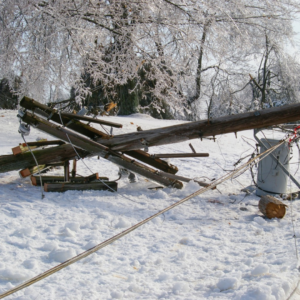
Report downed or sagging power lines
After a winter storm, downed power lines pose serious risks, so it’s crucial to practice caution. Always assume a downed line is live and dangerous and keep a distance of at least 30 feet. You should also avoid driving over downed lines or touching anything in contact with the line, like trees or metal. You can report downed lines to 911 or call Piedmont Electric at 800.222.3107.
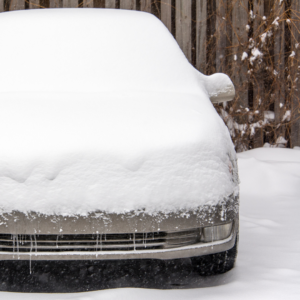
Get your car ready for cold weather
Service the radiator and maintain antifreeze level; make sure your tires are in good condition. Keep an emergency kit in your car including blankets, food and water, first aid, and other items you may need if you are stranded.
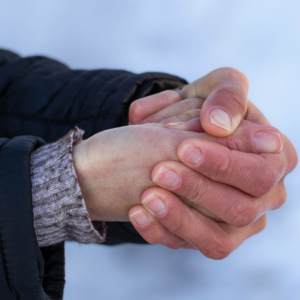
Learn the signs of frostbite and hypothermia and how to respond.
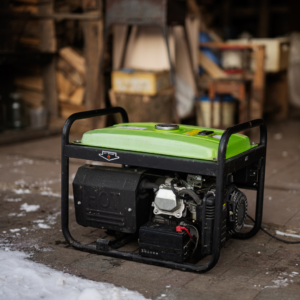
Generator Safety
- Generators and fuel should always be used outdoors and at least 20 feet away from windows, doors and attached garages.
- Install working carbon monoxide detectors on every level of your home. Carbon monoxide is a colorless, odorless gas that can kill you, your family and pets.
- Keep the generator dry and protected from rain or flooding. Touching a wet generator or devices connected to one can cause electrical shock.
- Always connect the generator to appliances with heavy-duty extension cords.
- Let the generator cool before refueling. Fuel spilled on hot engine parts can ignite.
- Follow manufacturer’s instructions carefully.
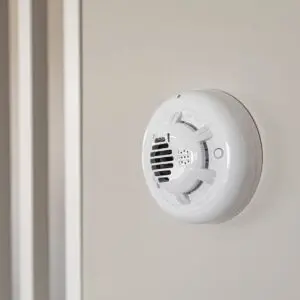
Install a CO detector
Prevent Carbon Monoxide (CO) poisoning. Install a CO detector and check that it has a working battery. Have your heating system checked by a qualified professional. Never use a gas range or oven to heat your home.
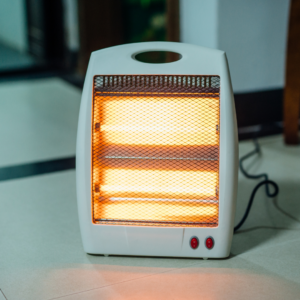
Space heater safety
Home heating is the second leading cause of home fires, and winter is when most home fires happen. Download the free Home Fire Safety Guide from the U.S. Fire Administration for ways to keep your home safe from fires.
